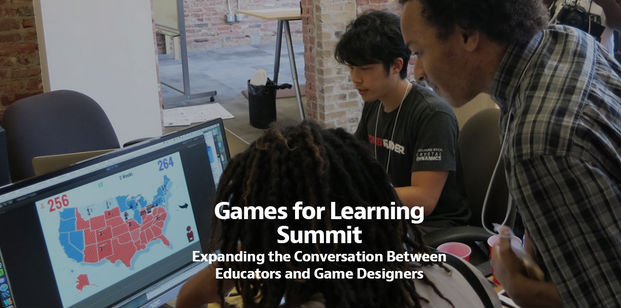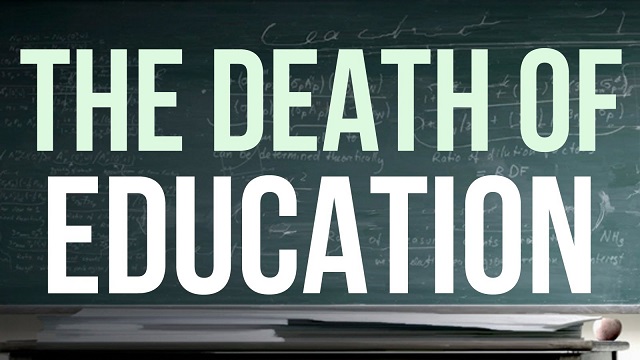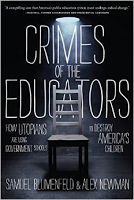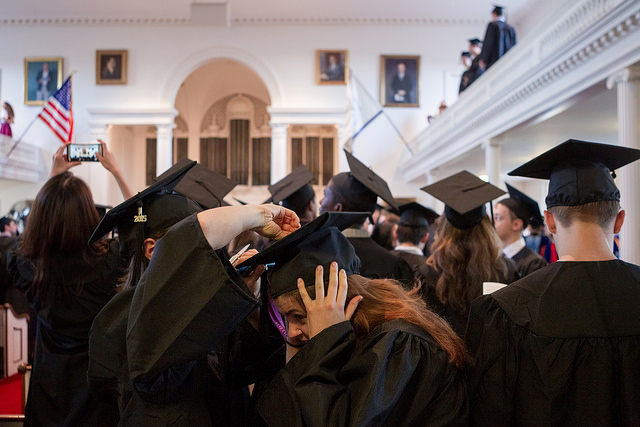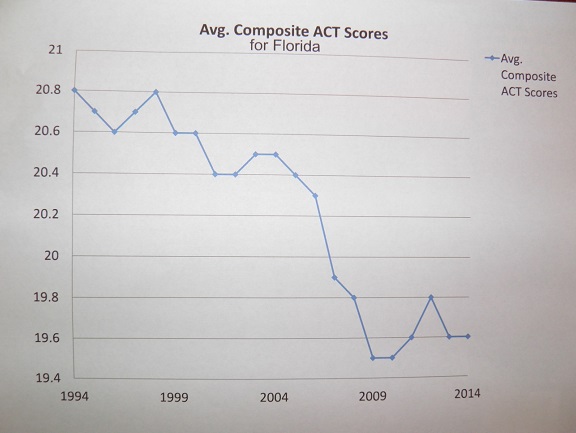Those of a certain age will remember the late comedian Rodney Dangerfield, whose common refrain, “I get no respect,” was a sure laugh-getter.
The same line could be applied to those of us who have gone through the hoops and rigors of graduate school to earn our PhD’s, only to find ourselves relegated to the equivalent of migrant workers on our campuses. When I taught as an adjunct professor for several years at a state university and a community college in Georgia, I could tell the permanent workers from the nonpermanent workers, the tenured from the non-tenured. We part-timers were laden with burdens like the Okies of the Dust Bowl era, trudging through campus under the weight of bags filled with papers and books. Many pulled these supplies in little wagons: a crate filled with files, laptop, books, and papers, on wheels.
Depending on which campus I happened to be teaching, we made between $2,100 and $2,800 per class, a figure in line with the latest Delta Cost Project report that showed that part-time instructors earned an average of $2,700 per class in 2012. This means that an instructor teaching four classes per semester earns $21,600 per year, and that’s with no benefits like health insurance or retirement.
Four classes is a higher-than-average professor course load, and most instructors have to travel between at least two campuses because of employment rules limiting the number of classes part-timers can teach on each campus. In comparison, established professors, who usually teach two or three courses a semester (when they aren’t on sabbatical), earned between $60,000 and $100,000 in 2012.
When Almost Everyone Is an Adjunct
Colleges are relying on part-timers more and more. In 1969, less than 22 percent of the academic positions were non-tenure track. In 2009, the figure had risen to 66.5 percent. It increased significantly in the next four years. According to the Association of Governing Boards, in 2013 non-tenure track faculty accounted for three-quarters of the instructional faculty at non-profit colleges and universities across the country.
The Delta report cited two studies, one that showed that students benefited from increased reliance on adjuncts, and one that showed they suffered. It’s difficult for me, based on my 20 years of teaching experience, as a graduate student then as a part-time instructor at state universities, a community college, and a private university in Georgia, to see what benefit there could be to having an overworked, underpaid adjunct professor, one that is institutionally homeless.
Consider the harried part-timer pulling her cart from the car to the “office.” This was necessary, for in most places one could expect at most part of a file drawer for storage, or if she had some seniority among adjuncts, a small locker for her coat and papers next to a cubicle in the hallway near the regular faculty offices.
At the state university we had one large room called “The Bullpen.” It contained cast-off desks and chairs. If your office hour happened to not be at a popular time, you would be lucky and get a place to sit, along with a chair for your student. I seemed to get the desk with the worst chair, one which required a delicate balancing act, as it wobbled precipitously. There was certainly no leaning back into a reverie about the poetry I was about to teach! That was too dangerous.
There were no opportunities for reveries or for getting into meaningful discussions with students who wanted to talk about the finer points of literature. In fact, one came to anticipate the look of surprise on students’ faces on the first visit, then the comment, “This is your office?” Some students were understanding, but I can’t help but think that even their estimation of their instructors went down when they saw them in such surroundings, especially in comparison to the offices of their other professors.
There was no privacy, no opportunity to offer mentoring of any kind. Heaven forbid that I might recommend additional politically incorrect reading, such as Richard Weaver, Allen Tate, or Russell Kirk. Someone at the adjoining desk might hear!
Easier Opportunities for Outing Dissenters
It would not have mattered in my case, as I later learned. I was outed by my own silence during the Democratic primaries in 2004, when I kept my head down trying to grade papers as my colleagues debated the relative merits of the nine candidates. I tried very hard to look like I was concentrating, when one of them asked me whom I supported. I could not lie, so I said none of them. There was a moment of stunned silence, then, “You’re not a Republican, are you?”
These colleagues did not bother to read conservative publications, so did not know that I had written a few articles. I started writing more. One of my fans praised my writing to the department chair. Shortly thereafter, I was told no classes would be available for me to teach the following semester.
I was told the same thing later at a community college when one of my columns angered the college president. In response to my supposedly offensive column (against thought control of students through anti-bullying campaigns), the president foolishly sent out a campus-wide email informing us of a new policy requiring that our bios in our articles leave out our affiliation with the college.
One of my tenured colleagues, who wrote a column for a higher-education publication, objected (with the assistance of an attorney friend), and had the policy changed. But that was not until after I had been told, sorry, they did not need me to teach classes the following semester; please try again later. When I did, I was told a new person was in charge of scheduling. I got no response from her. I knew it was useless. After my column had appeared, several of my colleagues told me that the college president had put out orders that I was never to teach there again.
A nonprofit free-speech advocacy group’s attorney looked into my case, and he concluded that given my adjunct status it would be just about impossible to prove discrimination—even as he said he saw this kind of thing happening to conservatives all the time. For adjuncts, no excuse is needed to get fired. Those with opinions that do not conform to the far-Left orthodoxy find it easier to get these low-paying jobs, often offered on a last-minute notice. They also are more vulnerable to losing these classes on a whim.
Kids Who Need the Most Help Get the Least-Established Professors
Adjuncts also get the introductory, labor-intensive classes like freshman composition that weed out students. So while my full-time colleagues got to teach the elective classes, which were smaller in size and required fewer assignments to grade, I and other part-timers were dealing with students ill-prepared for college, not able to write grammatical sentences, much less coherent papers, and doing it at cast-off desks in loud rooms or hallways.
But academic standards were not the top priority of administrators, as evidenced by the workshops and speeches at part-time faculty symposia before each semester. We were given pep talks about “retention” by engaging students and making learning fun. What administrators really wanted to “retain” was students’ financial-aid dollars. Among these new activities was service learning through civic engagement programs, housed in expensive new buildings. Students were awarded college credit for such activities as feeding the homeless with the Muslim Student Association or reading to kindergartners, then writing “reflection papers” on their experiences.
Once one gets on the part-time merry-go-round, it is almost impossible to get off. It’s a dizzying swirl of long and frequent commutes, and semester-to-semester class preparation and grading to keep the bill collector at bay. There is barely time to apply for full-time positions, much less write academic papers and books. Even if one were to find the time to write the academic papers, travel funds are not allocated to part-time faculty members to present them at conferences. Sabbaticals, which are regularly allocated to full-time faculty members, are out of the question.
Because the self-supporting part-timer lives on the verge of destitution, the pressures are great to not make waves, get good student evaluations, and keep failure rates low—even with classes in which the majority of students come in late, sans books, and needing reprimand for sleeping, web-surfing, and talking in class.
Federal Funds Subsidize Adult Daycare
To see how bad it has become, take the case of Texas A&M University adjunct professor Irwin Horwitz. Only a few of his 30-plus enrollees were doing academically competent work. When the administration refused to kick out the others who cheated, failed to do the work, and hurled profanities at Horwitz, he threatened to fail the entire class. The administration has now intervened.
Although I’ve never had students quite so abusive, I have had classes in which I wanted to fail the majority, and on occasion I had to call in security for unruly students. But too many failures draw attention from higher-ups, and often the response to abusive students is to “talk it out.”
The Blackboard Jungle has come to college campuses. Russell Kirk saw this coming with the establishment of federal funding for colleges in the 1950s, a development that generated considerable attention in the conservative press at the time. In “Decadence and Renewal in Higher Learning,” Kirk wrote about the “evangels of quantitative growth,” who in 1962 “pushed cheerfully onward toward the doubling and tripling of enrollments,” and did so by publishing false reports about the irrelevance of admission standards. One of these was the “Joint Office of Institutional Research,” which Russell termed a “propaganda bureau for the Association of State Universities and Land Grant Colleges and the State Universities Association.”
“One way to persuade Congress, the state legislatures, and the public of the righteousness of the cause is to advance the demagogue’s argument that everybody has a right to be in college,” wrote Kirk. He then illustrated: “Who are you, you old reactionary, to say that Joe Milligan, who got D’s in high school, won’t become another Albert Einstein after Dismal Swamp A. & M. has finished polishing him?” This “democratic dogma” is then joined with “the ambitions of certain anti-intellectual presidents, who dream of ever more professors and students within their own imperial systems.”
The Academic Overlords and Their Serfs
Kirk famously quit his teaching position at the University of Michigan, which he likened to “Behemoth U.” More than 50 years later, the situation has gotten much worse. The adjuncts are given the duty of “polishing” the Joe Milligans. This brings us back to the situation of professor Horwitz, not exactly at “Dismal Swamp A. & M.” but at Texas A. & M.
Both administrators and the top tier of faculty have little stake in ensuring that students admitted to their schools get a good basic education.
Horwitz is one of the rare few standing up for academic standards. But as an adjunct, as a member of the three-quarters of faculty members who have no voice in governance, he cannot change things. Those things, such as student advising, faculty hiring, and curriculum development, are in the hands of a smaller and smaller minority of faculty members. Today, as the use of adjuncts continues to rise, the full-timers are members of a privileged group that represents less than a quarter of the faculty. Given their teaching assignments, they represent an even smaller percentage of class hours and interaction with students.
These academic elites share power with administrators. Administrators increasingly come from the ranks of managers, not faculty. Their concerns are with enrollment numbers, not academic standards.
Both administrators and the top tier of faculty have little stake in ensuring that students admitted to their schools get a good basic education. Administrators love “service learning” and “civic engagement” programs because their lowered demands ensure that more students get college credit. Tenured elites are overwhelmingly radicals who have shut out those with whom they disagree. They use their classroom to convert students to their radical political views.
So students are increasingly indoctrinated with ideas about class systems, income inequality, and poverty. These elites, however, do not need to take to their students to ghettoes, soup kitchens, or migrant camps to show students about the class system. All they would need to do to demonstrate that is take students to their college’s “bullpen” office for adjunct faculty.
EDITORS NOTE: This column originally appeared in The Federalist.
 I received a copy of an email from Doug Lewis a concerned parent who lives in Collier County, Florida. After reading a column titled “College Board’s Reckless Spin on U.S. History” Doug decided to write the Collier County School Board about his concerns regarding Advanced Placement (AP) U.S. History courses given in the district.
I received a copy of an email from Doug Lewis a concerned parent who lives in Collier County, Florida. After reading a column titled “College Board’s Reckless Spin on U.S. History” Doug decided to write the Collier County School Board about his concerns regarding Advanced Placement (AP) U.S. History courses given in the district.

